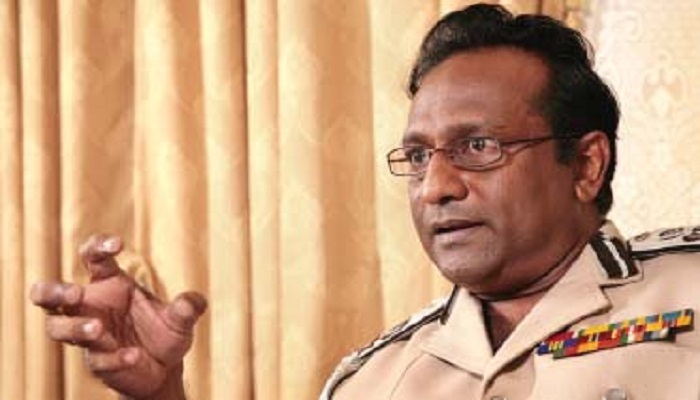
Retired admiral and former Minister of Public Security, MP Sarath Weerasekara, lashed out at Mullaitivu Magistrate Court following the court's ruling that the construction of a Buddhist vihara, without the approval of local residents, must cease.
"Do not forget that Sri Lanka is a Sinhala- Buddhist nation" warned Weerasekara. Despite the court's order, the police, military, and Department of Archaeology have all been involved in the construction of the Buddhist monument".
Weerasekara further exclaimed:
“We cannot accept the Mullaitivu Magistrate Court Judge removing us from the Kurunthumalai site. He does not have the authority to conduct an investigation related to archeology. He needs to understand that Sri Lanka is a Sinhala-Buddhist nation. Some Tamil judges are acting against the interest of the Buddhist archeological heritage in the North-East. Sinhala people need to unite to protest our heritage”
He added:
"They say that there is evidence of Tamil Buddhists having lived in the North and the East of the country, if so, why did they destroy the existing Buddhist archeological remains and place a trident on top of them?
These Tamil judges do not have a right to question the archeological Buddhist heritage of the Kurunthurmalai. Nor does he have the right to ask us to leave. Tamil judges should keep in mind that Sri Lanka is a Sinhala Buddhist nation".
Mullaitivu Bar Association has responded strongly by condemning the remarks by Weerasekara. A demonstration will also be carried out on July 11th in front of the Mullaitivu Magistrate Court protesting the comments made by the ruling party MP.
The construction of a Buddhist temple at Kurunthumalai in the North-East of Sri Lanka has been met with protests from Tamil people living in the area and is seen as yet another attempt to erase the Tamil identity of the North-East as part of the ongoing state-sponsored Buddhistisation.
We need your support
Sri Lanka is one of the most dangerous places in the world to be a journalist. Tamil journalists are particularly at threat, with at least 41 media workers known to have been killed by the Sri Lankan state or its paramilitaries during and after the armed conflict.
Despite the risks, our team on the ground remain committed to providing detailed and accurate reporting of developments in the Tamil homeland, across the island and around the world, as well as providing expert analysis and insight from the Tamil point of view
We need your support in keeping our journalism going. Support our work today.
For more ways to donate visit https://donate.tamilguardian.com.

